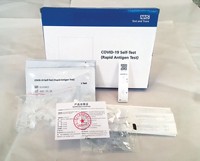Advertisement
Grab your lab coat. Let's get started
Welcome!
Welcome!
Create an account below to get 6 C&EN articles per month, receive newsletters and more - all free.
It seems this is your first time logging in online. Please enter the following information to continue.
As an ACS member you automatically get access to this site. All we need is few more details to create your reading experience.
Not you? Sign in with a different account.
Not you? Sign in with a different account.
ERROR 1
ERROR 1
ERROR 2
ERROR 2
ERROR 2
ERROR 2
ERROR 2
Password and Confirm password must match.
If you have an ACS member number, please enter it here so we can link this account to your membership. (optional)
ERROR 2
ACS values your privacy. By submitting your information, you are gaining access to C&EN and subscribing to our weekly newsletter. We use the information you provide to make your reading experience better, and we will never sell your data to third party members.
Diagnostics
US FDA adjusts course on validating COVID-19 antibody tests
by Jyllian Kemsley
May 8, 2020
| A version of this story appeared in
Volume 98, Issue 18

Responding to widespread criticism, the US Food and Drug Administration on May 4 tightened its regulation of tests for antibodies to the SARS-CoV-2 virus. Testing blood serum for antibodies can determine whether a person has been exposed to the virus and recovered from the disease it causes, COVID-19. Such serology tests could provide valuable information about the spread of the disease and whether people are immune to it. But widespread antibody testing for SARS-CoV-2 has been hampered by lack of availability and questions about test accuracy. The FDA issued a policy March 16 that allowed serology tests to be distributed and used if companies validated the tests internally, notified the agency, and included warning statements with the tests that the FDA had not reviewed them. That approach led a congressional committee to conclude in April that “FDA is unable to validate the accuracy of antibody tests that are already on the market, and companies are ignoring requests from the Department of Health and Human Services to voluntarily submit their tests for validation.” The FDA’s updated serology test policy now includes recommendations for specificity and sensitivity and requires companies to submit antibody test validation data to the agency.






Join the conversation
Contact the reporter
Submit a Letter to the Editor for publication
Engage with us on Twitter